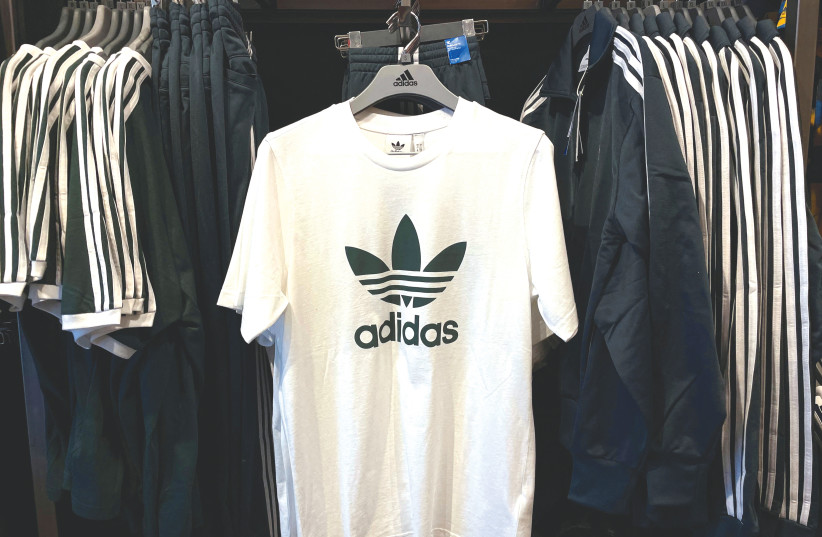It is a truism that while the US Constitution guarantees Americans freedom of speech, it does not protect them from the consequences of things they say. Any shopkeeper has the freedom to share (or refrain from sharing) their opinion on any given topic, and those around them – employees, and customers – will react as they see fit. If consumers choose not to avail themselves of the services of a butcher who insults their customers – or shares unconventional views on race, literature, sports, or any other topic, the butcher has to deal with the fallout.
A simple economy is a self-policing system in this regard. But because of the unconventional way in which money flows in some sectors – notably the music industry’s streaming services – industry stakeholders need to do a better job of ensuring that vile behavior is not monetarily rewarded.
It’s now been several weeks since Kanye West began his verbal assault on the Jewish community, beginning with a tweet in which he said he would go “death con 3 ON JEWISH PEOPLE.”
Since that bizarre tweet, which seemed like a threat against Jews, reactions to West’s tweetstorm have varied. He himself has failed to recant or demonstrate significant remorse; in interviews since the tweet, West has decried “Jewish media” and negatively stereotyped Jews more broadly.
In an unsurprising move, considering the abhorrent nature of his comments, numerous social media sites have taken action against West, and several retail brands have severed ties with the artist/entrepreneur.

However, for consumers at large, the controversy provided, more than anything else, a desire to listen to and explore more of his music.
What does Spotify have to say about Kanye West?
On a certain level, this is not surprising. As a major celebrity, it is certainly appropriate that many reporters thought West’s remarks warranted public criticism, and a flurry of negative articles followed his tweet.
Proving the axiom that “there’s no such thing as bad PR,” in the wake of this press coverage, searches for West spiked. Google trends show that October 10 – one day after the antisemitic tweet was shared – had the highest search volume in recent months for the term “Kanye West,” and the subsequent few days were not far behind.
Metrics from music analytics platform Muso.ai follow the same trend: On Spotify, West’s songs had over 450 million streams on October 13, roughly 10 times that of a typical day. While this data point may not be surprising, it is certainly disturbing.
Based on Spotify’s payout structure, those additional streams on October 13 netted West and his labels/distributors roughly $1 million on that day alone. Spikes on other streaming sites like Youtube and SoundCloud drive that figure up further.
LAST WEEK, Spotify announced that, unlike Gap and Adidas, it has no plans to terminate or pause its relationship with West – a particularly disheartening decision in light of Spotify’s business model.
Streaming services like Spotify feature a unique disconnect that places greater responsibility on the corporation to take action. In the fashion world, consumers actually spend money to purchase a Yeezy product, and (while data is not readily available) it’s unlikely that sales for West’s apparel increased as dramatically as West’s music streams.
However, in Spotify’s business model, consumers don’t pay for streaming individual songs, but artists are rewarded per stream. In other words, because of the nature of their model, Spotify and other streaming services directly rewarded West for his antisemitism. In fact, there is nothing stopping musicians from intentionally making inflammatory comments with the goal of profiting from a spike in streams.
The music industry has had its share of performers with serious imperfections, and we can’t expect Spotify to permanently ban one of the world’s most successful musical artists. But, at the same time, it is untenable for the platform to continue to let him profit directly from public expressions of hatred. Other industries – television, social media, fashion, etc. – have not necessarily been perfect, but they have all attempted to penalize celebrities for truly offensive speech.
The logical thing is for Spotify to remove artists temporarily as their streams spike after offensive comments, to make sure they are not actually rewarded. (At a minimum, consumers should expect streaming companies to do their best to counteract the hatred being spread – perhaps by donating the money they earn during these streaming spikes to a philanthropic cause.)
Events of the past few years have generated extensive conversation about “cancel culture” and the extent that free speech is still valued in our society. But, while reasonable minds can differ about what level of societal infraction one must make to warrant being “canceled,” we can all agree that it is never appropriate to incentivize hateful rhetoric.
One issue with cancel culture is its permanence. When we expel people from mainstream society, we shouldn’t be surprised when they choose to associate with other social outcasts, and they often find spaces where their unorthodox views are reinforced. (West’s decision to buy the alternative social media site Parler after being banned from Twitter highlights this point perfectly.) Penalizing offenders temporarily might actually be more effective in spurring self-reflection and contrition.
For streaming services, removing an artist – even temporarily – for comments he made on social media is not a decision to be made lightly. But by neglecting to act as streams pile up in the wake of bigotry, they are demonstrating that they lack a corporate conscience.
Several days ago, Spotify’s CEO referred to West’s comments as “awful.” But if that comment is more than lip service, the company has to develop some sort of approach to ensure that provocateurs like Kanye West are not able to benefit from their hateful rhetoric.
The writer is the executive director of the Philadelphia Holocaust Remembrance Foundation.
